- Home
- neetha Napew
Helliconia Winter Page 5
Helliconia Winter Read online
Page 5
"We pray/praying every day for better climates as before."
"Without a garrison we die/will/unavoidable."
Perhaps it was the use of the archaic fatalistic future which made Asperamanka scowl. His rectangular face seemed to narrow; he stared down at the table with pursed lips, nodding his head as if making some sly pact with himself.
It was by Asperamanka's command that young Lieutenant Shokerandit sat next to him in a place of honour, so that some of the latter's glory might be deflected to his commander. Asperamanka turned his head to Shokerandit and asked, "Luterin, what reply would/dare you give these elders to their request - in high dialect or otherwise?"
Shokerandit was aware of the danger lurking in the question.
"Since the request comes not from three mouthpieces but from all the mouths in Isturiacha, sire, it is too large for me to answer. Only your experience can discover the fit reply."
The Priest-Militant cast his gaze upwards, to the rafters and their long shadows, and scratched his chin.
"Yes, it could be said that the decision is mine, to speak for the Oligarchy. On the other hand, it could be said that God has already decided. The Azoiaxic tells me that it is no longer possible to maintain this settlement, or the ones to the north of it."
"Sire-"
He raised one triangular eyebrow in his rectangular face as he addressed the elders.
"The crops fail year by year despite all prayer can do. That's a matter of common record. Once these southern settlements of ours grew vines. Now you are hard put to it to raise barley and mouldy potatoes. Isturiacha is no longer our pride but our liability. It is best that the settlement be abandoned. Everyone should leave when the army leaves, two days from now. In no other way can you escape eventual starvation or subjection to Pannoval."
Two of the leaders had to prop up the third. Consternation broke out among all who overheard this conversation. A woman rushed to the Priest-Militant and clasped his stained boots. She cried that she had been born in Isturiacha, together with her sisters; they could not contemplate leaving their home.
Asperamanka rose to his feet and rapped on the table for attention. Silence fell.
"Let me make this matter clear to you all. Remember that my rank entitles me - no, forces me - to speak on behalf of both Church and State. We must be under no illusions. We are a practical people, so I know that you will accept what I say. Our Lord who existed before life, and round whom all life revolves, has set this generation's steps on a stoney path. So be it. We must tread it gladly because it is his will.
This gallant army who celebrates with you tonight, these brave representatives from all our illustrious nations, must start almost immediately northwards again. If the army is not on the move, it will starve from lack of fodder. If it remains here in Isturiacha, it will starve you with it. As farmers you understand the case. These are laws of God and nature. Our first intention was to press on to conquer Pannoval; such was our charge from the Oligarch. Instead, I must start my men homewards in two days, neither more nor less."
One of the elders asked, "Why such a sudden change of plan, Priest-Militant, when yours was the victory?"
The rectangular face managed a horizontal smile. He looked about at the greasy faces, lit by firelight, hanging on his words, while he timed his utterance with the instinct of a preacher.
"Yes, ours was the victory, thanks be to the Azoiaxic, but the future is not ours. History stands against us. The settlements to the south where we hoped we might find support and supplies are wiped out, destroyed by a savage enemy. The climate deteriorates faster than we judged - you see how Freyr scarce rises from his bed these days. My judgement is that Pannoval, that heathen hole, lies too far for victory, and near enough only for defeat. If we continued there, none of us would return here.
"The Fat Death spreads from the south. We have it among us. The most courageous warrior fears the Fat Death. Nobody goes into battle with such a companion by his side.
So we bow to nature and return home to report our victory to the Oligarchy in Askitosh. We leave, as I have said, in fifty hours. Use that time, settlers, use it well. At the end of that period, those of you who have decided to return to Sibornal with your families will be welcome to come north with us, under the army's protection.
Those who decide to stay may do so - and die in Isturiacha. Sibornal will not, cannot return here. Whatever you decide, you have fifty hours to do it in, and God bless you all."
Of the two thousand men, women, and children in the settlement, most had been born there. They knew only the harsh life of the open fields or - in the case of the more privileged men - of the hunt. They feared leaving their homes, they dreaded the journey to Sibornal across the steppes, they even misdoubted the sort of reception they might receive at the frontier.
Nevertheless, when the case was put to them by the elders at a meeting in the church, most settlers decided to leave. For longer than anyone could recall, the climate had been worsening, year by small year, with few remissions. Year by year, connections with the northern homeland had become more tenuous, and the threat from the south greater.
Tears and lamentations filled the camp. It was the end of all things. All that they had worked for was to be abandoned.
As soon as Batalix rose, slaves were sent off into the fields to gather in all the crops they could, while the households packed their worldly goods. Scuffles broke out between those who intended to leave and a smaller group who intended to stay at all costs; the latter shouted that the crops should be preserved.
Three kinds of slaves were driven out to labour in the fields. There were the phagors, dehorned, who served as something between a slave proper and a beast of burden. Then there were the human slaves. Lastly there were slaves of non-human stock, Madis, or, more rarely, Driats. Both humans and non-humans were regarded as dishonoured persons, male or female. They were the socially dead.
It counted as a sign of rank to keep slaves; the more slaves, the higher the ranking. The many Sibornalese who did not keep slaves looked with envy on those who did, and aspired to own at least a phagor. In easier times, slaves in the cities of Sibornal had often been maintained in idleness, almost as if they were pets; in the settlements, slaves and owners worked side by side. As times grew harsher, the attitudes of the owners changed. Slaves became drudges, except in rare cases. The slaves of the settlement, when they returned from the fields, were now put to building carts, and given other tasks beyond their competence.
When the Priest-Militant's stipulated two days were up, bugles were sounded and everyone had to assemble outside the confines of the settlement.
The quartermasters of the Sibornalese army had set up field kitchens and baked bread for the start of the homeward trek. Rations were going to be short. After a conference, the chiefs of staff announced that the settlers heading north must shoot their slaves or set them free, in order to cut down the number of mouths to be fed. From this order, ancipitals were spared, on the grounds that they could double as beasts of burden and were able to forage for their own food.
"Mercy!" cried both slaves and masters. The phagors stood motionless.
"Kill off the phagors," some men said, with bitterness.
Others, remembering old history, replied, "They were once our masters..."
The settlers were now under military law. Protests were of no avail. Without their slaves, householders would be unable to transport many of their goods; still the slaves had to go. Their usefulness had expired.
Over a thousand slaves were massacred in an old riverbed near the settlement. The corpses were given casual burial by phagors, while hordes of carrion birds descended, perching on nearby fences in silence, awaiting their chance. And the wind blew as before.
After the wailing a terrible silence fell.
Asperamanka stood watching the ceremony. As one of the women of the settlement passed near him, weeping, he was moved by compassion and placed a hand on her shoulder.
"Bless you, my daughter. Do no
t grieve."
She looked up at him without anger, her face blotched by crying. "I loved my slave Yuli. Is it not human to grieve?"
Despite the edict, many slaves were spared by their owners, especially those who were sexually used. They were concealed or disguised, and assembled with the families for the journey. Luterin Shokerandit protected his own captive, Toress Lahl, giving her trousers and a fur cap to wear as a disguise. Without a word, she tucked her long chestnut hair into the confines of the cap and went to hold Luterin's yelk by its bridle.
The marching columns began to form up.
While this bustle was afoot and carts were being overloaded and arrangements were being made for the wounded, six arangherds left slyly, climbing the perimeter, and made off over the plain with their dogs. Theirs was the wild free life.
Asperamanka stood alone by his black yelk, thinking his dark thoughts. He called an orderly to fetch Lieutenant Shokerandit to him.
Luterin arrived, looking, in his unease, very immature.
"Have you two reliable men on reliable mounts, Lieutenant Shokerandit? Two men who would travel fast? I wish news of our victory to get to the Oligarch by the fastest means. Before he hears from other sources."
"I could find two such men, yes. We from Kharnabhar are great riders."
Asperamanka frowned, as if this news displeased him. He produced a leather wallet, which he then tucked under one arm.
"This message must be taken by your reliable men to the frontier town of Koriantura. It is there to be delivered to an agent of mine, and he will deliver it in person to the Oligarch. Your reliable men's responsibility ends at Koriantura, you understand? Report to me when all is ready."
"Sire, I will."
The wallet was pulled from under the arm and held out towards Shokerandit in a blue-gloved hand. It was sealed with the Archpriest-Militant's seal and addressed to the Supreme Oligarch of Sibornal, Torkerkanzlag II, in Askitosh, Capital City of Uskutoshk.
Shokerandit chose two reliable youths, well-known to him and like brothers back in Shivenink. They left their comrades and their fighting phagors and mounted two shorn yelk, with nothing more than packs of provisions and water at their backs. Within the hour they were off across the grasslands, riding northwards with the message for the dread Oligarch.
But the Oligarch of Sibornal, ruling over his vast bleak continent, had spies everywhere. Already a trusted man of his, placed close to the Archpriest-Militant Asperamanka, had ridden off with the news of the engagement, for one particular interest of the Oligarch's was the progress of the plague northwards.
It was the time for farewells. The trek northwards began in some disorder. Each unit started off with its carts, supply animals, phagors, and guns. Their noise filled the shallow landscape. They jostled for the course they had traversed only a few days earlier. The settlers leaving Isturiacha, many for the first time in their lives, went in greatest disarrary, clutching children and precious possessions which had found no place on their overloaded carts.
Tearful good-byes were called to those individuals who had made the decision to remain behind. Those exiles stood outside the perimeter, stiff and upright, hands upraised. In their bearing was a consciousness of playing the honourable role, of defying fate - a consciousness, too, of the elemental forces slowly mounting against them. From now on, only the Azoiaxic and their own competence would be their defence.
Luterin Shokerandit sat at the head of the Shivenink force, aware of how his status had changed since last he passed this way. He was now a hero. His captive, Toress Lahl, disguised in her cap and breeches, was forced to ride behind him on his yelk, clinging to his belt. The death of her husband still burned inside her, so that she spoke no word.
In her pain, Toress Lahl showed no fear of the yelk, a creature of mild habits but ferocious aspect. Its horns curled about its shaggy head. Its eyes, shielded by furry lids, gave the beast a watchful look. The curl of its heavy underlip suggested that it despised all that it saw of human history.
The settlement fell away behind the procession. A succession of wearyingly similar valleys began to unfold ahead. The wind blew. The grass rustled.
Silence closed over the procession. But one of the elders who had elected to leave Isturiacha was a garrulous old man who enjoyed the sound of his own voice; he urged his mount over until he was riding beside Shokerandit and his lieutenants, and tried to pass the time of day with him. Shokerandit had little to say. His mind was on the immediate future and the long journey back to his father's house.
"I suppose it really was the Supreme Oligarch who ordered Isturiacha to be closed," he said.
No response. He tried again. "They say the Oligarch is a great despot, and that his hand is harsh over all Sibornal."
"Winter will be harsher," said one of the lieutenants, laughing.
After another mile, the elder said confidentially, "I fancy you young men do not see eye-to-eye with Asperamanka ... I fancy that in his position you would have ordered a garrison to stay and defend us."
"The decision was not mine to make," Shokerandit said.
The elder smiled and nodded, revealing his few remaining teeth. "Ah, but I saw the expression on your face when he announced his ruling, and I thought to myself - in fact, I said it to the others - 'Now there's a young man with a measure of mercy in him ... a saint,' I said..."
"Go away, old man. Save your breath for the ride."
"But to break up a fine settlement just like that. In the old days, we used to send our food surplus back to Uskutoshk. Then to break it up ... You'd think the Oligarch would be grateful. We're all Sibornalese, are we not? You can't argue against that, can you?"
When Shokerandit had been given, and failed to take, his chance to argue against it, the elder wiped his mouth with the back of his hand and said, "Do you think I was wise to leave, young sir? It was my home, after all. Perhaps we should all have stayed. Perhaps another of the Oligarch's armies - one with more generous impulses towards its compatriots - will be coming this way again in a year or two... Well, this is a bitter day for us, that's all I will say."
He was turning his steed's head and about to ride off when Shokerandit reached out suddenly and grasped the collar of his coat, almost unseating the old man.
"You must know nothing of the world if you can't see the truth of the situation more clearly than that! What I think of the Priest-Militant is immaterial. He gave the only judgement possible. Work it out for yourself instead of airing your grievances. You see what a multitude we are? By dimday, we shall have spread out until we stretch from one horizon to the other. Feet, steeds, mouths to be fed... the weather becoming more bleak... Work it out for yourself, old man."
He gestured over the moving multitude, gestured towards all the grey, black, and russet backs of the soldiers, each back burdened with a pack containing a three-day ration of hardtack, plus unspent ammunition, each back turned towards the south and the pallid sun. The multitude spread wider and wider, to allow the creaking carts more room. It moved with a dull entombed sound which the low hills returned.
Among the men riding went others on foot, often clinging to a saddlestrap. Some carts were piled with equipment, others with wounded, who suffered at every jog of the axle. Loaded phagors trudged by their masters, backs bent, eyes to the ground; the ancipital fighting corps marched slightly apart with their strange jointless stride.
The halt that night was a confused affair. Not all the shouted orders and bugle calls could discipline it. Units settled where they would, pitching tents or not as the case was, to the inconvenience of other units seeking a better site. Animals had to be fed and watered. The watering entailed sending water carts off into the gloom to one side or the other, to seek out streams in the hills. The mutter of men's voices, the restless movement of animals, were never absent during the brief night.
The clouds parted. It grew colder.
The Shivenink contingent formed a close group. Being young, most of them clustered about Luterin S
hokerandit, preparing to drink the night away. Their canteens contained the spirit they called yadahl, fermented from seaweed, ruby red in colour. In yadahl they celebrated their recent victory, Luterin's heroism, and the excitement of being on the plains rather than in the familiar mountains of home - and the pleasure of simply being alive, and anything else that entered their heads. Soon they were singing, despite outcries from groups of would-be sleepers.
But the yadahl did not inspire Luterin Shokerandit to sing. He moved apart from his companions from Kharnabhar, his thoughts dwelling on his fair captive. Though she had been married, he doubted if she was as old as he, despite her assured manner; the women of the Savage Continent married young.
He longed to possess her. And yet his parents had committed him to marry in Kharnabhar. Why should that make a difference to what he did here, in the wilds of Chalce? His friends would laugh at his scruples.
His memories returned to the night before the Sibornalese army had left the frontier town of Koriantura to head south. His contingent had been given leave. His friend Umat had tried to persuade him to come on the rampage, but no, he had hung back like a fool.
While the rest of them had gone drinking and whoring, Luterin had walked the cobbled streets alone. He had entered a deuteroscopist's shop, set in a square next to an old theatre.
The deuteroscopist had shown him many curious things, including a small object like a bracelet, said to come from another world, and a tapeworm in a jar one hundred inches long, which the deuteroscopist had charmed from the entrails of a lady of quality (by using a small silver flute which he was prepared to sell at a price).
"Have I the courage for battle?" Luterin had asked the diviner.
Whereupon the old man had become busy on Luterin's skull with calipers and other measuring devices before saying finally, "You are either a saint or a sinner, young master."
"That was not my question. My question was, am I hero or coward?"
"It's the same question. It needs courage to be a saint."
"And none to be a sinner?" He thought of how he had not dared to join his friends.

 Zero City
Zero City Freedom Omnibus
Freedom Omnibus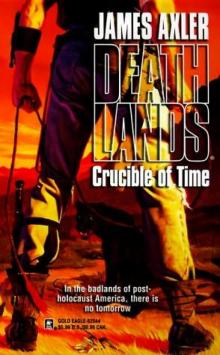 ACrucible of Time
ACrucible of Time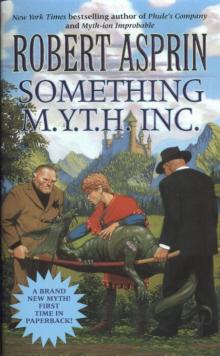 Something MYTH Inc
Something MYTH Inc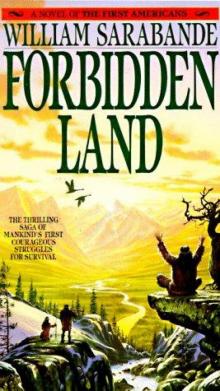 Forbidden Land
Forbidden Land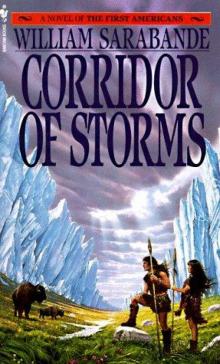 Corridor of Storms
Corridor of Storms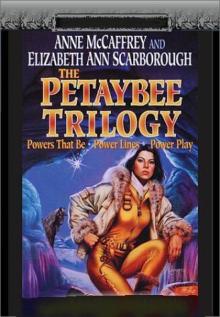 The Peytabee Omnibus
The Peytabee Omnibus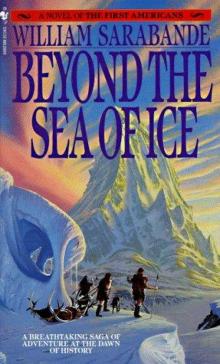 Beyond the Sea of Ice
Beyond the Sea of Ice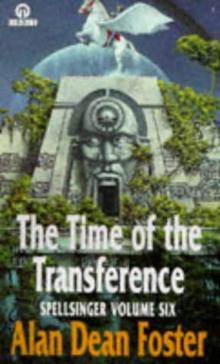 The Time Of The Transferance
The Time Of The Transferance EarthBlood
EarthBlood The Lexal Affair
The Lexal Affair The Web
The Web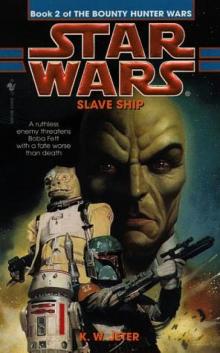 Slave Ship
Slave Ship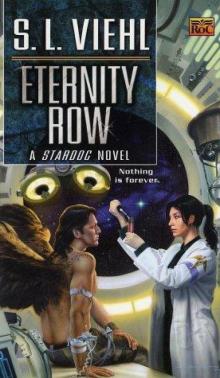 Eternity Row
Eternity Row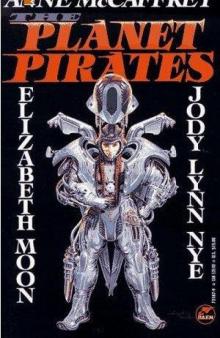 Planet Pirates Omnibus
Planet Pirates Omnibus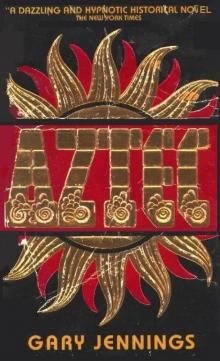 Aztec
Aztec The Awakening
The Awakening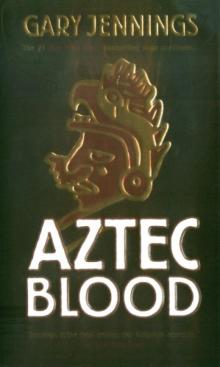 Aztec Blood
Aztec Blood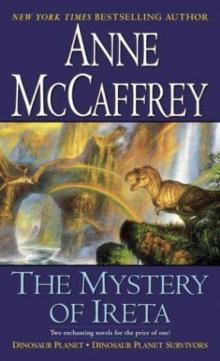 The Mystery of Ireta Omnibus
The Mystery of Ireta Omnibus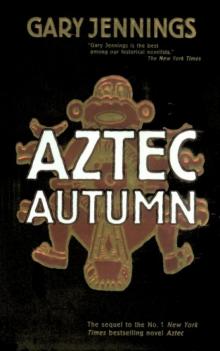 Aztec Autumn
Aztec Autumn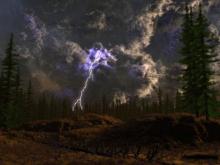 The Savage Horde
The Savage Horde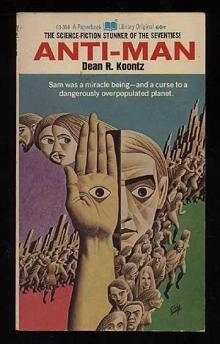 Anti - Man
Anti - Man Deep Trek
Deep Trek Starfall
Starfall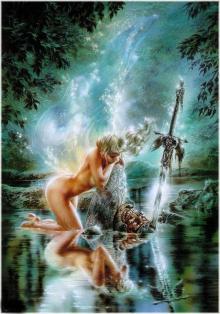 The Paths Of The Perambulator
The Paths Of The Perambulator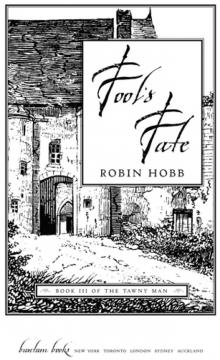 Fool's Fate
Fool's Fate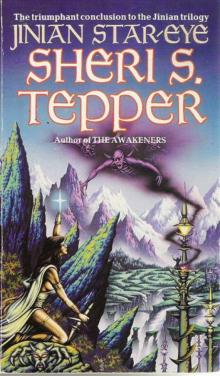 Jinian Stareye
Jinian Stareye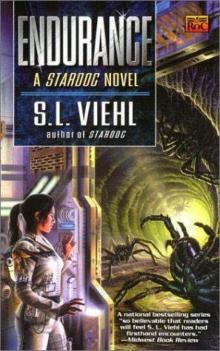 Endurance
Endurance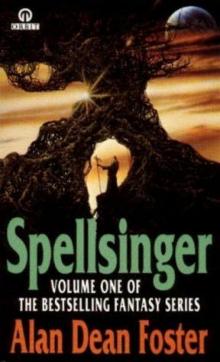 Spellsinger
Spellsinger Hybrids
Hybrids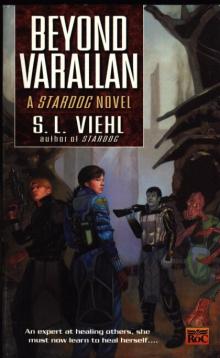 Beyond Varallan
Beyond Varallan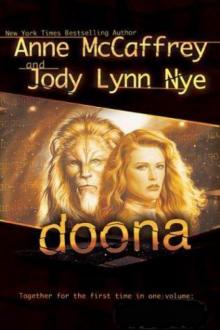 Doona Trilogy Omnibus
Doona Trilogy Omnibus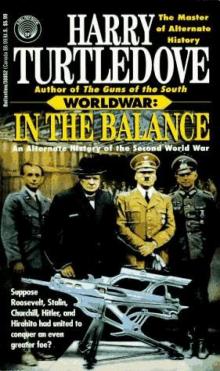 In th Balance
In th Balance Planerbound
Planerbound The Nightmare begins
The Nightmare begins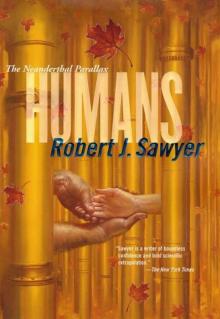 Humans
Humans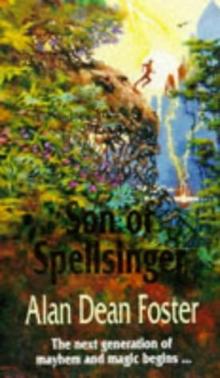 Son Of Spellsinger
Son Of Spellsinger